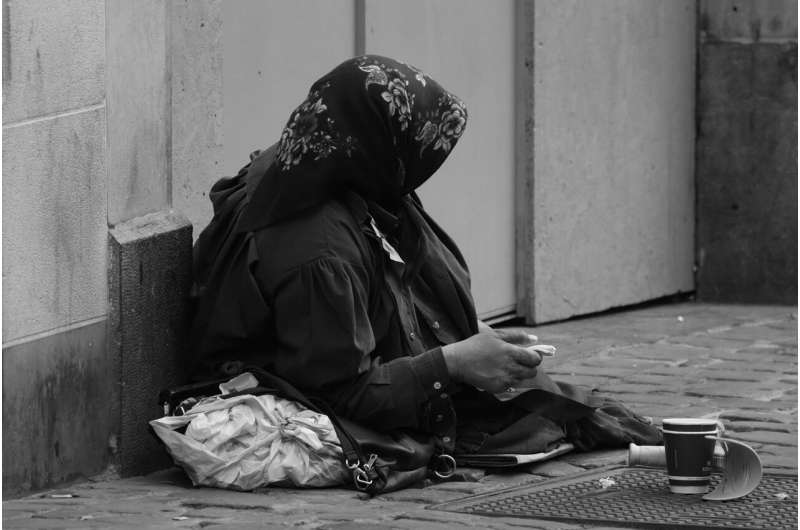This article has been reviewed according to Science X's editorial process and policies. Editors have highlighted the following attributes while ensuring the content's credibility:
fact-checked
peer-reviewed publication
trusted source
proofread
Poverty shown to reduce women's ovarian reserves

Earlier menopause onset is associated with a variety of health consequences, including osteoporosis, neurologic disorders, cardiovascular disease, and mortality. Evidence suggests that the exhaustion of the ovarian follicle pool leads to menopause. A new study proposes that neighborhood disadvantage may affect the ovarian reserve and the timing of menopause. Results of the survey are published in Menopause.
This is not the first study to link socioeconomic status with ovarian reserve and an earlier age at menopause. For example, in the Study of Women's Health Across the Nation, lower education attainment and unemployment status were associated with earlier menopause onset independent of race/ethnicity, smoking, use of contraceptives, parity, marital status, and history of heart disease.
What makes this new study involving more than 1,000 healthy premenopausal women unique is its focus on the effect of socioeconomic disadvantage at the neighborhood level. Specifically, it looked at aggregate exposure to neighborhood poverty over the period of adulthood in relation to ovarian reserve as indexed by antimüllerian hormone levels and antral follicle count.
The findings of this study, as well as related future research, have important implications for women's health and well-being overall because they may point to areas for potential intervention.
Survey results are published in the article "Association between Neighborhood Poverty and Ovarian Reserve: The Ovarian Aging Study."
"This study highlights the potential effect of early life adversity, and specifically neighborhood poverty, on ovarian reserve, which in turn has implications for the timing of menopause onset and risk for diseases of aging. These findings add to the understanding of the adverse effect of psychological stress on reproductive health," says Dr. Stephanie Faubion, medical director for The Menopause Society.
More information: Anwesha Pan et al, Association between neighborhood poverty and ovarian reserve: the ovarian aging study, Menopause (2024). DOI: 10.1097/GME.0000000000002331



















